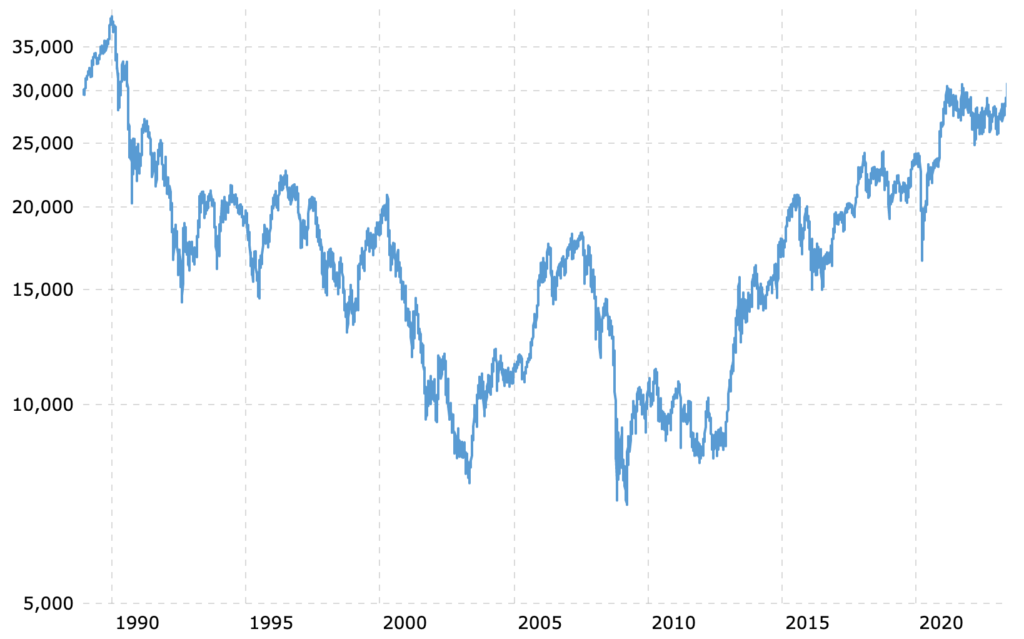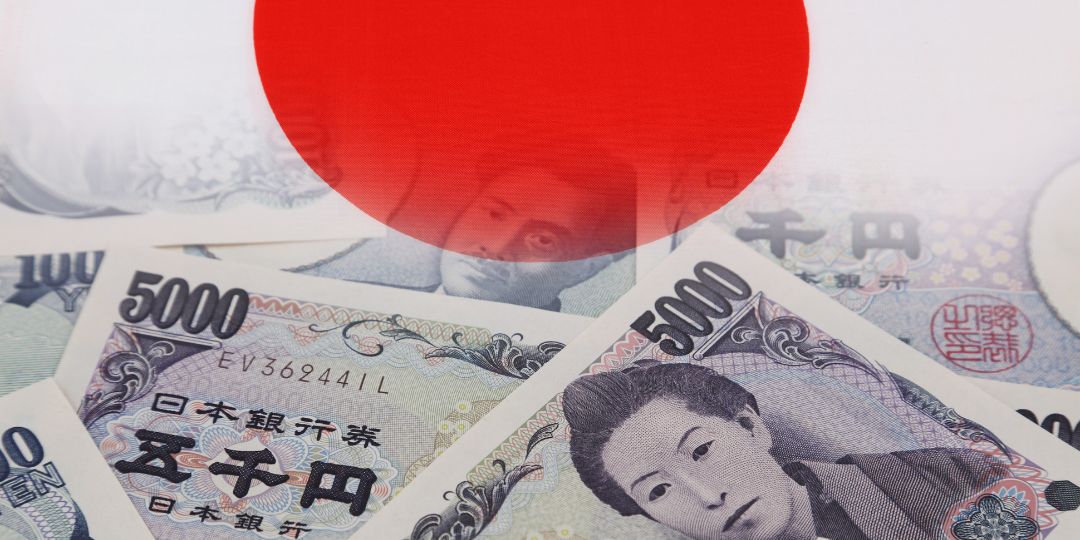On May 22, 2023, Japan’s stock market climbed to record heights not seen since 1990. The Tokyo Stock Price Index (TOPIX) rose 14.21 points or 0.66%, reaching 2,175.90 points, its highest since August 1990. The Nikkei 225 Index also rose 278.47 points or 0.90%, reaching 31,086.82 points. Both closed at their highest.
The 1980s was a whirlwind period of rapid economic development in Japan. The Nikkei 225 Index skyrocketed by 5 times in just 8 years. However, the bubble economy of the 1990s resulted in the index plunging into a lengthy period of trough. Could this new surge be the rebound we’ve all been waiting for?

Foundations for Strong Growth
First, Japan’s robust economic future can’t be ignored. In a recent report, Goldman Sachs strategists Kazunori Tatebe and Bruce Kirk mention several positive factors. Recovery in tourism, strong capital expenditure plans, and the continuation of the Bank of Japan’s loose monetary policy all contribute to a solid economic outlook. Post-pandemic economic activity and last year’s continuous yen depreciation have significantly impacted the Tokyo Stock Exchange-listed companies.
Foreign Capital Inflows and Repurchase Wave Bolster Market Sentiment
This year, Warren Buffett, one of the most successful investors of all time, has shown great interest in the Japanese stock market. Last month, he hinted at potential investments in Japanese stocks outside the top 5 trading houses.
This endorsement encouraged Wall Street giants to follow, including hedge funds Point72 and Citadel, Blackstone, and KKR. In April, foreign traders net bought $22 billion worth of Japanese stocks and futures, a record level of foreign inflow.
Japan’s move to improve listed company governance has also sparked a wave of stock buybacks. Major Japanese companies, including Toyota, and Mitsubishi Corporation, have announced new stock buyback plans, signaling a bullish market sentiment. SoftBank even plans to spend 100 billion yen to repurchase up to 1.19% of its shares. This is significant in the wake of this reform, as undervalued businesses are expected to adopt stock buybacks to boost their share prices.
Risk Alert: BOJ Policy Shift and Inflation
The most significant risk to the Japanese market is a policy shift by the Bank of Japan. Inflation in Japan will play a pivotal role in this matter. Japan’s newly released inflation data reached a 40-year high, persistently surpassing the central bank’s 2% target, flagging potential risks.
The new governor of the Bank of Japan, Kazuo Ueda, has repeatedly stated that he has no plans to change the monetary easing policy. This decision keeps the yen at a low level, increasing the purchasing power of foreign investors and making the Japanese market more attractive. Ueda said that he would not hesitate to increase easing if necessary but emphasized that the cost of changing policies prematurely could be very high.
Neil Newman, the Deputy Head of Japan Research at Macquarie Capital Tokyo, believes Japan has entered a bull market lasting 2 to 3 years. The breadth and depth of the Japanese stock market, coupled with its excellent liquidity and now steady corporate earnings, are poised to attract more funds.
However, Masakazu Tokura, Chairman of the Japan Business Federation, cautioned that people should not be “overjoyed” by the recent rebound in the Japanese stock market. Some of this bounce is indeed due to the loose monetary policy of the Bank of Japan in a global monetary tightening situation.
Conclusion: Market Triumph Amid Monetary Policy Concerns
Without a doubt, the Japanese stock market is flying high, fueled by improved company rules, a positive mood in the market, and a helpful monetary policy. It’s doing so well that investors around the world are paying attention.
But even as we celebrate this great time for Japan’s stocks, it’s essential to be careful and watch everything causing this growth. With the issue of rising inflation on the horizon, how the global interest rate cycle goes, and the Bank of Japan’s response and potential changes in its policy could play a big part in what happens next in this thriving market.




